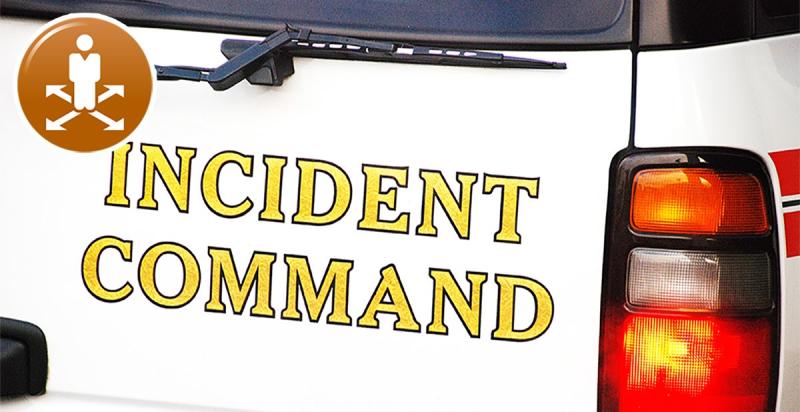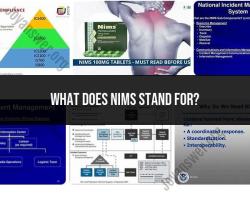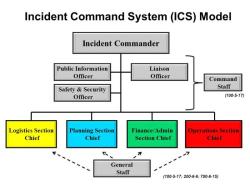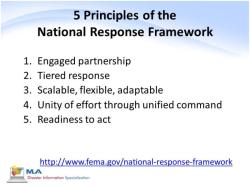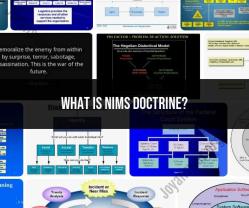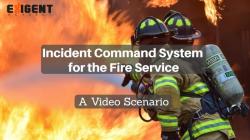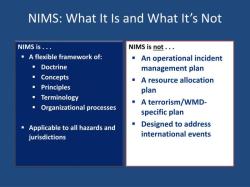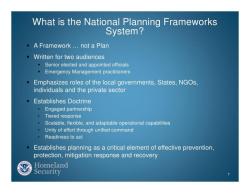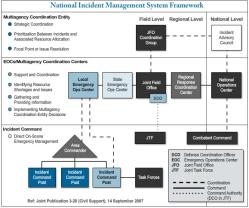What is Incident Command training?
Incident Command System (ICS) training is a standardized and systematic approach to managing emergency incidents or events. It provides a structure and set of principles for coordinating the efforts of multiple agencies and organizations involved in responding to emergencies or disasters. ICS is widely used in the United States and around the world for incident management and emergency response.
Key Components of Incident Command Training:
Common Terminology:
- ICS promotes the use of common terminology to ensure clear and consistent communication among responders from different agencies.
Organizational Structure:
- ICS establishes a clear organizational structure with defined roles and responsibilities. This includes positions such as Incident Commander, Operations Section Chief, Planning Section Chief, Logistics Section Chief, and Finance/Administration Section Chief.
Modular Organization:
- ICS is modular, allowing it to be scaled up or down to match the size and complexity of the incident. The organization can expand or contract based on the needs of the response.
Unified Command:
- ICS encourages the use of Unified Command, where representatives from multiple agencies work together to make collaborative decisions and coordinate resources.
Incident Action Planning:
- ICS emphasizes the development of Incident Action Plans (IAPs) to outline response objectives, strategies, and tactics. Plans are continually updated as the incident evolves.
Resource Management:
- ICS includes systems for identifying, ordering, mobilizing, and demobilizing resources (personnel, equipment, and supplies) in a coordinated manner.
Incident Facilities:
- ICS establishes facilities, such as the Incident Command Post (ICP) and Emergency Operations Center (EOC), to serve as central locations for coordination and decision-making.
Integrated Communications:
- ICS promotes integrated communications systems to ensure efficient and effective information exchange between responders.
Incident Command Training Levels:
ICS 100: Introduction to ICS:
- Basic level providing an overview of ICS principles, terminology, and organizational structure.
ICS 200: ICS for Single Resources and Initial Action Incidents:
- Intermediate level covering the application of ICS for managing single resources and initial action incidents.
ICS 300: Intermediate ICS for Expanding Incidents:
- Intermediate level focusing on the management of expanding incidents, including developing and implementing IAPs.
ICS 400: Advanced ICS for Command and General Staff:
- Advanced level addressing the roles and responsibilities of command and general staff in complex incidents.
Importance of Incident Command Training:
Standardization:
- ICS provides a standardized and scalable framework that facilitates coordination between agencies and jurisdictions during emergencies.
Interagency Cooperation:
- ICS promotes interagency cooperation and collaboration by providing a common language and structure for responders.
Efficient Resource Management:
- Effective resource management ensures that personnel and equipment are deployed efficiently to address incident needs.
Clear Chain of Command:
- ICS establishes a clear chain of command, reducing confusion and enhancing decision-making during emergencies.
Adaptability:
- ICS is adaptable to various types and sizes of incidents, allowing for a flexible and effective response.
Effective Communication:
- The use of common terminology and integrated communication systems enhances communication among responders.
Incident Command Training is often a requirement for emergency responders, including fire service personnel, law enforcement, emergency medical services, and other public safety professionals. It plays a crucial role in enhancing emergency response preparedness and ensuring a coordinated, efficient, and effective approach to managing incidents.
What topics and skills are covered in Incident Command training?
Incident Command training covers a wide range of topics and skills essential for effectively managing emergency situations. These can be categorized into four key areas:
1. ICS Fundamentals:
- Understanding the Incident Command System (ICS) structure and organizational principles.
- Familiarity with the five major functional areas of ICS: Command, Operations, Planning, Logistics, and Finance/Administration.
- Knowledge of ICS terminology and communication protocols.
- Understanding the importance of unified command and clear chain of command.
2. Response Operations:
- Assessing the incident scene and identifying hazards.
- Implementing appropriate response strategies and tactics based on incident type and severity.
- Utilizing resources effectively and managing personnel safely.
- Coordinating activities with various responders and stakeholders.
- Documenting incident activities and maintaining proper records.
3. Planning and Decision-Making:
- Conducting incident analysis and developing situation reports.
- Creating an effective incident action plan (IAP) that outlines response objectives, resource allocation, and communication strategies.
- Analyzing risks and making informed decisions in critical situations.
- Adapting plans and strategies as the situation evolves.
- Prioritizing tasks and ensuring efficient resource utilization.
4. Communication and Coordination:
- Establishing and maintaining effective communication channels between all responders and stakeholders.
- Utilizing various communication tools and technologies effectively.
- Providing clear and concise instructions and updates to personnel.
- Maintaining situational awareness and ensuring information flow is consistent and accurate.
- Coordinating activities with other agencies and organizations involved in the response.
Additional Skills:
- Leadership and team building: Effectively leading and motivating diverse groups of responders in high-pressure situations.
- Problem-solving and critical thinking: Analyzing situations and making sound decisions under time pressure.
- Adaptability and flexibility: Responding effectively to changes and unexpected developments.
- Cultural competency: Understanding and respecting diverse cultural backgrounds and needs in emergency situations.
- Stress management and self-care: Maintaining physical and mental well-being during long and demanding incidents.
The specific topics and skills covered in Incident Command training may vary depending on the target audience and training program level. However, the core principles covered above remain essential for anyone involved in emergency response and management.
